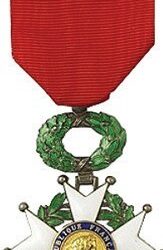Drs. Kamiar and Arash Alaei were arrested in June 2008 on charges of “communicating with an enemy government,” i.e. the US, and “seeking to overthrow the Iranian government.” Kamiar, 37, was sentenced to three years, but released earlier last October, while Arash, 42, is still serving his six-year sentence in Evin Prison.
Kamiar accepted the Global Health Council’s Jonathan Mann Award for Global Health and Human Rights in Washington, DC, last Thursday on behalf of his brother and himself.
Physicians for Human Rights (PHR) believes the brothers were arrested because of their work on HIV, which included talks abroad, community education, social support and treatment for HIV-positive patients. PHR, a nonprofit organization dedicated to using medicine and science to stop human rights violations, organized a letter campaign across 80 nations, along with Amnesty International, pushing for the brothers’ release.
“The appeal has been to allow the brothers to do their work,” said Susannah Sirkin, deputy director of PHR. “This is not a political campaign. This is a campaign by colleagues, many of whom know the brothers and their work directly because they have worked in concert with them or been inspired by their pioneering efforts inside Iran.”
The brothers began treating HIV-positive patients in Iran in the late 1990s and soon developed an effective program for AIDS care in a Kermanshah prison, their hometown. The Alaeis’ three-pronged approach of integrated prevention, care and social support has since become a model program in the Middle East for dealing with HIV/AIDS, being used in countries such as Afghanistan and Tajikistan.
“It was beyond borders really and the program became part of the national strategic plan,” Kamiar told BBC World Service. “When it was part of a national strategy, all we did was part of the strategy and we never went into politics or other [things].”
While they were in prison, the Alaei brothers were not allowed to work as doctors, but they taught other inmates about HIV, tuberculosis and other infectious diseases. They also helped them quit smoking and shared basic disease prevention techniques such as teaching proper hand-washing.
Kamiar used some of his time in prison, part of which was in solitary confinement, to also teach himself Spanish, says Philip Nasca, dean of the school of public health at the State University of New York at Albany, where Kamiar is currently working toward his second doctorate.
“I think he kept his intellectual life alive and his mental life alive,” said Nasca.
“No prison walls can break the spirit of a human being with a cause,” Kamiar said upon accepting his award.
Kamiar also thanked everyone who had worked for his and his brother’s release, commenting that early on in their sentence, they had no idea there was so much support for them. “We thought we were forgotten,” he said, until his mother whispered during a visit, “The world supports you.”
Organizations such as Physicians for Human Rights, the World Medical Association, American Medical Association, International AIDS Society, and professors at Harvard’s School of Public Health, where Kamiar received his masters in 2006, all petitioned on the brothers’ behalf.
Nevertheless, despite his release, Kamiar says he will not feel free until his brother is also released. “It’s difficult for me because the majority of the time I am just thinking about him, what is he doing now, is he sleeping,” said Kamiar. “But I know if I was in prison and he was out, I’d want him to continue our work.” Thus, Kamiar is working to finish his doctorate in health policy so that he may further their efforts.
Established in 1999, the award they received last week highlights the link between health and human rights, honoring the work of social justice advocate and anti-global poverty activist, Dr. Jonathan Mann.
“Drs. Kamiar and Arash Alaei have worked tirelessly throughout their careers to promote the rights of marginalized populations in the fight against HIV/AIDS,” said president and CEO of the US-based Global Health Council Jeffrey L. Sturchio. “Their efforts have served as an inspiration for everyone who cares about human rights and public health around the world.”
In giving the $10,000 award, Sturchio noted the two brothers “really put themselves at risk in advocating for the rights of people living with HIV and AIDS.… If there are still places in the world where people are put in prison just because they are advocating for the rights of people with HIV, then that is a world that we would like to see changed.”























